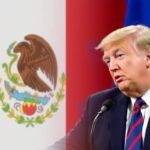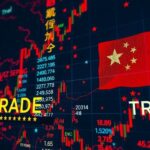Politics
ASIA, BERGMAN, CBS NEWS, CHINA, CONGRESSIONAL, DONALD TRUMP, ECONOMICS, EUROPE, FINANCE, INVESTING, JENNIFER BERGMAN, MEXICO, NATIONAL RETAIL FEDERATION, NEW YORK CITY, NORTH AMERICA, PETERSON INSTITUTE FOR INTERNATIONAL ECONOMICS, TAXATION, THE TOY ASSOCIATION, TOY ASSOCIATION, TRUMP, U. S, US-CHINA RELATIONS, WEST SIDE KIDS
Nia Simpson
Potential Impact of New Tariffs on Toy Prices and Retailers in 2025
Toy prices may rise significantly if Donald Trump imposes new tariffs on imports in 2025, with toy retailers expressing concern about the impact on consumers and businesses. Nearly 80% of U.S. toys are manufactured in China, leaving American consumers vulnerable to price increases and loss of spending power. The Toy Association has urged members to advocate against the proposed tariffs, which could lead to significant limits on product availability and affordability.
In light of recent developments, toy prices may experience substantial increases if former President Donald Trump enforces new tariffs on imports following his inauguration in 2025. The toy industry, which heavily relies on Chinese manufacturing—accounting for nearly 80% of toys sold in the United States—is raising concerns regarding the potential financial burden on consumers. Jennifer Bergman, owner of West Side Kids in New York City, warned that such tariffs could lead to immediate price hikes, threatening the viability of her business and adversely affecting local families who rely on affordable toys.
The situation is compounded by analyses from the National Retail Federation, which estimates that American consumers could collectively face a loss of $78 billion in spending power due to increased prices on a wide range of imports, including apparel, toys, and household goods. The Toy Association has also vocalized worries, urging members to communicate their apprehensions to their Congressional representatives, as imposed tariffs would effectively create a tax on imported goods, which is ultimately borne by consumers.
Economists suggest that while tariffs could prompt increased American manufacturing over time, Trump may opt to utilize the threat of tariffs as a strategy for negotiation rather than actual implementation. This approach could mitigate immediate impacts but would still leave the toy industry and consumers in a precarious position, facing potential price surges without significant relief on the horizon.
The toy industry operates predominantly with manufacturing capabilities based in China, accounting for a significant portion of the supply chain. With ongoing conversations surrounding tariffs, there is heightened scrutiny on how these could disrupt market stability and consumer pricing. As tariffs function as a form of tax on imports, the burden typically shifts to consumers, presenting a risk for retailers and local businesses, especially in a competitive market where affordability is crucial.
In summary, the potential introduction of new tariffs by Donald Trump poses significant challenges for the toy industry in the United States. If enacted, these tariffs could dramatically inflate toy prices, reducing consumer spending power and placing added financial strain on retailers. As stakeholders within the industry prepare for possible outcomes, the overarching concern remains the broader economic impact on American families and businesses reliant on affordable imports.
Original Source: www.cbsnews.com








Post Comment